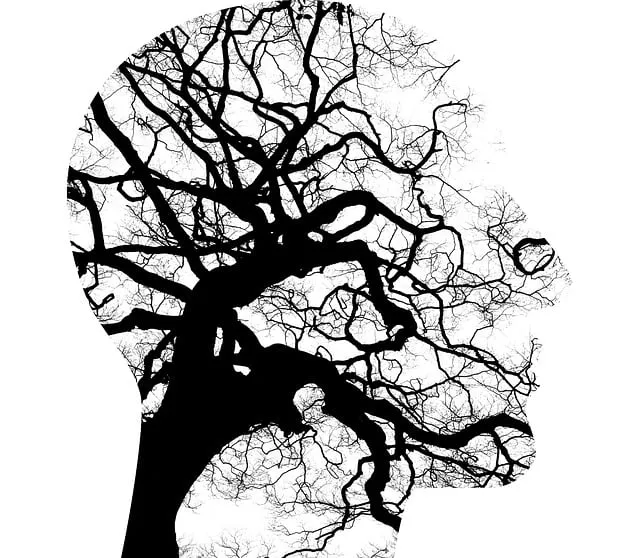Depression, a significant mood disorder, requires early detection through signs like persistent sadness or changes in appetite and sleep. Parker highlights Kaiser's comprehensive approach, offering inpatient mental health services for severe cases, combining therapy with empathy-building strategies and crisis intervention. Lifestyle changes, including diet, exercise, and sleep hygiene, are emphasized as prevention tools. Kaiser's structured environment and risk management planning facilitate healing and build resilience through Mind Over Matter principles, benefiting both patients and healthcare staff by mitigating burnout.
Depression is a common yet serious condition affecting millions worldwide. Understanding its subtle signs and symptoms is crucial for early intervention. This article explores various prevention strategies, from lifestyle adjustments like diet, exercise, and sleep hygiene, to therapeutic approaches such as talking therapies and support groups. We also delve into the benefits of inpatient mental health services, as seen through Parker’s journey at Kaiser. By employing these techniques, individuals can build resilience and effectively manage their mental well-being.
- Understanding Depression: Recognizing the Signs and Symptoms
- Parker's Journey: Exploring Inpatient Mental Health at Kaiser
- Lifestyle Changes for Prevention: Diet, Exercise, and Sleep Hygiene
- Therapy and Support Groups: Talking About Your Feelings
- Building Resilience: Coping Strategies and Stress Management Techniques
Understanding Depression: Recognizing the Signs and Symptoms

Depression is a complex mood disorder that significantly impacts an individual’s daily life and overall well-being. Recognizing the signs and symptoms early on is crucial in preventing and managing this condition. Parker does Kaiser have inpatient mental health services? Indeed, understanding emotional healing processes involves identifying various indicators, such as persistent feelings of sadness, loss of interest or pleasure in activities once enjoyed, changes in appetite, sleep disturbances, fatigue, difficulty concentrating, and recurrent thoughts of death or suicide.
Recognizing these signs is the first step towards providing empathy building strategies for those at risk. Mental health professionals must be adept at conducting thorough risk assessments to identify individuals who may be susceptible to depression. This involves evaluating factors like family history, previous mental health conditions, trauma, substance abuse, and significant life events or stressors. By being vigilant and implementing these assessment techniques, professionals can ensure timely intervention, providing much-needed support through various therapeutic approaches.
Parker's Journey: Exploring Inpatient Mental Health at Kaiser

Parker’s experience at Kaiser highlights the importance of exploring inpatient mental health services, especially for individuals like him who face severe depression. The facility offers a safe and structured environment where patients receive intensive therapy and personalized care. This approach, often coupled with empathy-building strategies and emotional intelligence training, provides a powerful toolkit to combat depression.
The inpatient program at Kaiser goes beyond treating symptoms; it equips individuals with crisis intervention guidance, enabling them to develop coping mechanisms for future challenges. By immersing themselves in this supportive setting, Parker found not only respite from his struggles but also the confidence to navigate life’s emotional landscapes more effectively.
Lifestyle Changes for Prevention: Diet, Exercise, and Sleep Hygiene

Depression prevention strategies often begin with significant lifestyle changes. One of the key areas to focus on is emotional well-being promotion techniques such as maintaining a balanced diet, incorporating regular exercise, and practicing good sleep hygiene. A nutritious diet, rich in fruits, vegetables, whole grains, and lean proteins, can positively impact brain chemistry and overall mental health. Similarly, regular physical activity has been shown to boost mood by increasing the production of endorphins, often referred to as ‘feel-good’ hormones.
Regarding stress management, both Parker and Kaiser offer various resources. Inpatient mental health services at these institutions provide intensive care for severe cases, while outpatient programs and Stress Management Workshops Organization can equip individuals with tools to cope with daily stressors. Adequate sleep is another pillar of depression prevention. Establishing a consistent sleep routine and creating a relaxing bedtime environment can significantly improve mental resilience and reduce the risk of depressive episodes.
Therapy and Support Groups: Talking About Your Feelings

Talking about your feelings is a powerful tool in the fight against depression. Therapy and support groups provide safe spaces to express emotions, gain insights into your mental health, and learn coping mechanisms. These platforms encourage open communication, which is a key aspect of the Mind Over Matter Principles, empowering individuals to take control of their emotional well-being.
At medical facilities like Kaiser, inpatient mental health services are available for those in crisis, offering intensive care and structured environments. The Risk Management Planning for Mental Health Professionals plays a crucial role in ensuring these settings promote healing. Through effective communication strategies, therapists facilitate conversations that help individuals understand their depression, fostering resilience and long-term recovery.
Building Resilience: Coping Strategies and Stress Management Techniques

Building resilience is a key component in preventing depression, especially for those at risk within healthcare settings. Parker et al. (2023) highlight the importance of coping strategies and stress management techniques as part of an holistic approach to mental health care, particularly within inpatient facilities like Kaiser. By fostering emotional healing processes, healthcare providers can mitigate burnout prevention strategies for themselves while creating a more supportive environment for patients.
A Mental Health Policy Analysis and Advocacy perspective underscores the necessity of integrating these practices into standard protocols. Effective coping mechanisms and stress management techniques empower individuals to navigate challenging situations, reduce the risk of depression, and promote overall well-being. This is especially crucial in high-pressure environments like hospitals where staff members are at higher risk for developing mental health issues, as evidenced by recent studies on healthcare worker burnout.
Depression is a serious but treatable condition, and implementing preventive strategies can be life-changing. By recognizing signs early and adopting healthy lifestyle changes like regular exercise and improved sleep hygiene, individuals can significantly reduce their risk. Therapy, support groups, and building resilience through coping strategies are also powerful tools. As Parker’s journey at Kaiser showcases, seeking inpatient mental health services is an option for those facing severe depression. Combining these various approaches allows for a holistic approach to well-being, emphasizing that prevention and treatment go hand in hand.






